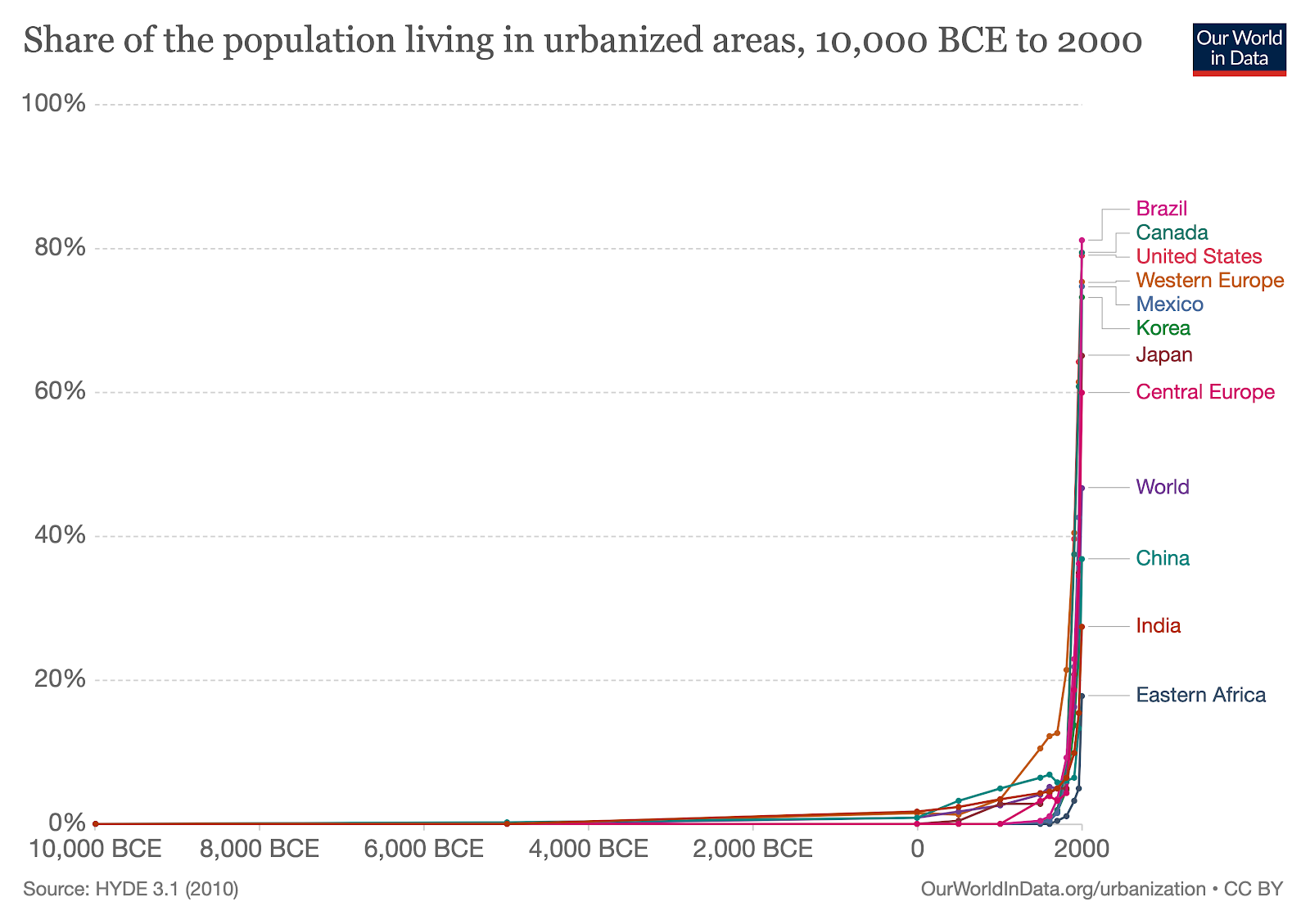AdamSmithWorks Teaching Resources
Jobs, Innovations, Culture, and Crowds
Private people who want to make a fortune never think of retiring to the remote and poor provinces of the country, but resort either to the capital, or to some of the great commercial towns. They know that where little wealth circulates there is little to be got, but that where a great deal is in motion, some share of it may fall to them.
Wealth of Nations, Book IV, Chapter 3
The trend toward city living has a long history and a robust future. What lures over half of the world’s population toward urban living? In Book IV of The Wealth of Nations, Smith continues to develop the case for unrestrained (free) trade. He describes the benefits of competition as advantageous to the persons who live within the country, and he suggests that the same maxims should lead a whole nation to regard a neighboring rich nation as a further opportunity for the acquisition of riches. Simply put, markets, supported by strong institutions, thrive where the action is. The extent of the market expands those benefits.
In 18th century British and European cities, manufacturers, merchants, and other bourgeoisie “trucked, bartered and exchanged” with local city dwellers, country folks, and, through increasingly sophisticated supply chains, traded goods throughout the world. Today’s cities continue to attract people who seek opportunities and higher relative wages as compared to rural areas. From Delhi to Dhaka, Kampala to Ouagadougou, projections indicate continued future mass movement toward city living. The trend toward urbanization and away from rural living began in the past few centuries.

Smith offers a rich history of cities in Book III of The Wealth of Nations. In a chapter titled, Of the Rise and Progress of Cities and Towns, Smith describes the progression from subsistence to luxury in various parts of Europe. The incentive of living with protection from lords led the burghers (townspeople) to align with the sovereign and gain power through their magistrates. This led to:
Order and good government, and along with them the liberty and security of individuals, were, in this same manner, established in cities at a time when the occupiers of land in the country were exposed to every sort of violence. (WN.III.iii)
It was in secure cities that manufacturing of silks, velvets, and brocades flourished. Opulence in many Italian cities led to surplus goods that were transported through accessible trade routes, and exports that enabled imports propelled foreign commerce.
How does Smith’s account of early European city growth compare to the growth of cities and trade gains in other parts of the world as well as in different times in history?
Your team at AdamSmithWorks would love to hear from you about class discussions that might ensue, use of any of the resources provided, new resources to add, and of course, how Adam Smith might inform your conversation about any other topics.
The AdamSmithWorks Team
|